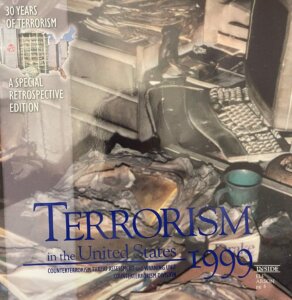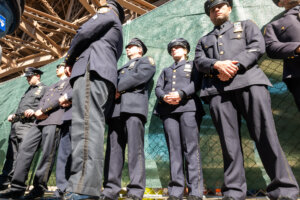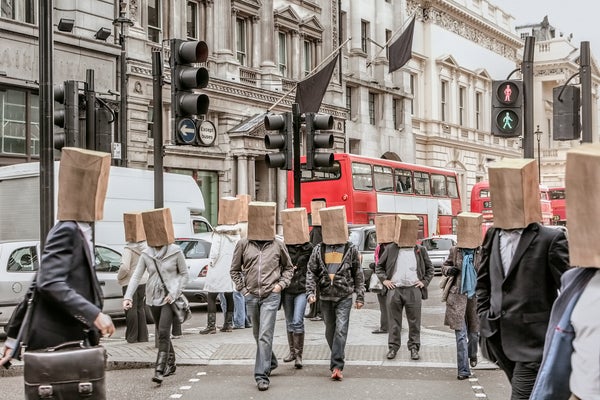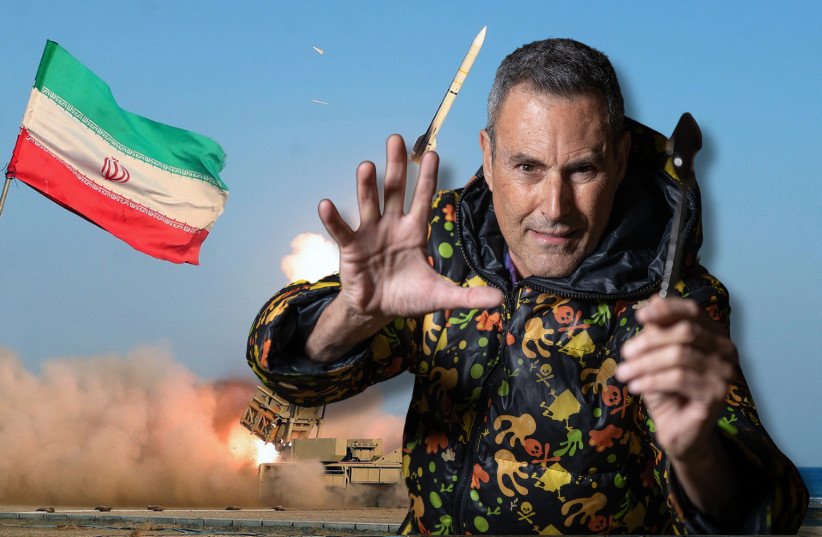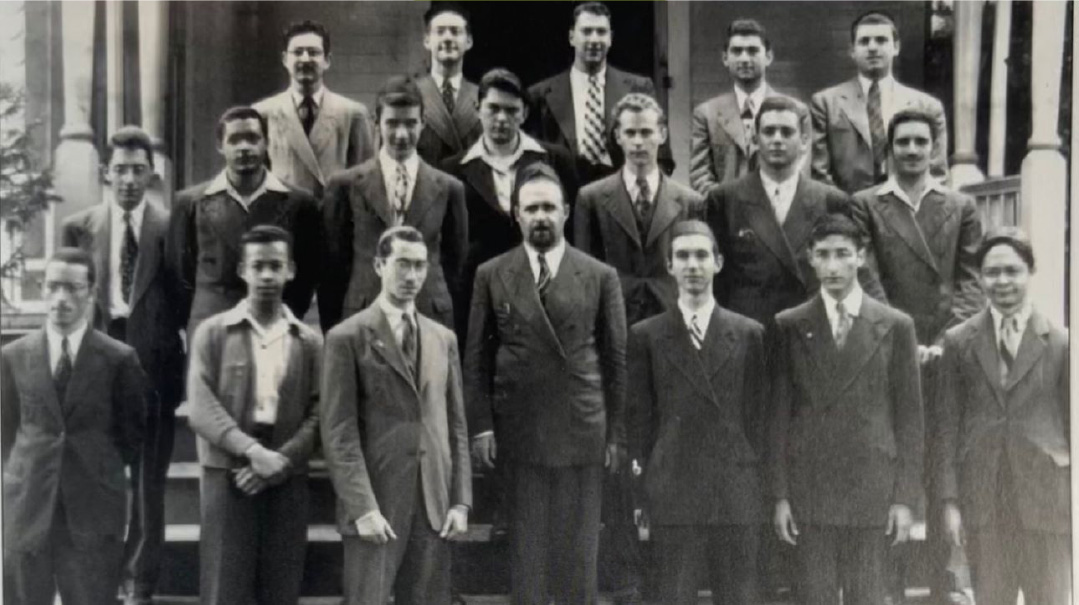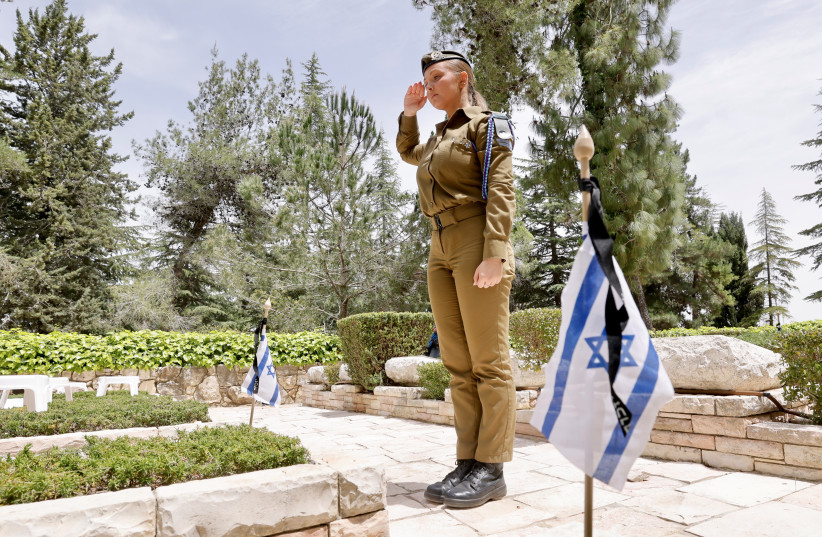Trump’s lies are more dangerous than ever — does Jewish law have a solution?
Thursday’s debate between President Joe Biden and former President Donald Trump made one thing clear: American citizens must figure out how to define and react to a lie, with a particular emphasis on reaction.
Two of America’s most seasoned journalists, Dana Bash and Jake Tapper — both of whom happen to be Jewish — failed to respond to egregious lies during the debate, highlighting that lies are our greatest social and political challenge, and that non-response to them has wrongly become a norm.
Jewish law has plenty to say about lying — and it certainly does not recommend doing nothing.
One of the things it points out: Facing a skilled liar head-on can be tough. And when it comes to facing someone like Trump, whose lies have recently earned him a conviction on 34 felony counts, it’s debatable whether he should have the opportunity to show off that skill set.
“Halakhah (Jewish law) treats ordinary lying as a vice, and lying in court as a crime for both witnesses and judges,” said Rabbi Aryeh Klapper, Dean of the Center for Modern Torah Leadership. “Criminally convicted liars lose core privileges of citizenship such as the right to testify. They may also be prevented from taking oaths, which can put them at a disadvantage in business.”
Yet if anything, Trump’s lies seemed to give him an edge on his opponent; left unconstrained, he was free to perform.
“I’m not sure I’d ever watched Donald Trump lie so incessantly, extravagantly and unabashedly, and that’s saying something,” Frank Bruni wrote in The New York Times. “On Thursday night he lied about the attack on the Capitol on Jan. 6, 2021. He lied about the violence in Charlottesville, Va., in 2017. He lied about his relationship with the military, about his concern for the environment — about pretty much any and every subject that came up. He lied with a smile. He lied with a shrug. He lied with a sneer.”
When Trump twisted the truth until it sounded like Democrats support killing babies on arrival, the feminist writer Jessica Valenti wrote on X, “I’m sorry, but Trump just claimed that Democrats allow “after birth” abortion and the moderators’ only response was “thank you”???”
The problem of an unchecked lie matters for all Americans, but it especially matters for the Jewish community — because the big lie of Jewish power, and the antisemitism that often follows it, thrives in an environment where flagrant lies are acceptable.
So what does Judaism have to say about lying? Plenty.
Trump’s lies and Jewish law
I was interested in hearing more about “core privileges of citizenship” that a criminally convicted liar might lose.
“Being judges,” Rabbi Klapper said. “The ability to take an oath was an essential part of participating in public life, because otherwise you couldn’t defend yourself or your property in many situations.”
At what point do we as citizens believe that lying precludes a person from “participating in public life” — like, perhaps, being featured in televised debates? Or being eligible to run for president?
Jewish law also outlines potential physical punishment for lying in court; “Perjured witnesses can also be given lashes, like most halakhic criminals,” Klapper said. But Rabbi Klapper cautioned that such punishment was extremely rare. And of course, this was ancient law — not modern practice.
There is also the famous and, as Rabbi Klapper put it, “weird” case of eidim zomemim, or witnesses who lie.
“Eidim zomemim are dealt the very same punishment they intended to generate with their false testimony,” writes Rav Moshe Taragin of Torat Har Etzion, summarizing the views of Masekhet Makkot. “For example, if eidim zomemim conspired to obligate capital punishment, they themselves are executed; if they intended to cause financial loss, they must reimburse their intended victim.”
It’s one of the most unforgettable parts of Jewish law, which shocked me when I first encountered it as a child: If you go to court and undertake a conspiracy to wrongly bring the death penalty upon your innocent neighbor, you might pay with your life for trying to take away his. This extraordinary expression of the high value Judaism places on the truth also shows that Jewish law believes that a liar who meaningfully harms others in a court of law should be penalized.
Thinking about eidim zomemim reminded me of Trump’s involvement in the infamous case of the Central Park Five. After five Black teenagers were arrested on rape charges — which turned out to be false — Trump took out full-page newspaper ads urging that they receive the death penalty.
Even when it was clearly established that the teenagers, who served 6 to 13 years in prison, had been falsely accused, and even when a serial rapist was linked to the crime through DNA evidence and confessed, Trump faced no consequences. And he continued to bear down, and continued to suggest the Central Park Five deserved harsh punishment. “You have people on both sides of that. They admitted their guilt. If you look at Linda Fairstein and if you look at some of the prosecutors, they think that the city should never have settled that case. So we’ll leave it at that,” Trump said in 2019.
Jewish principles regarding eidim zomemim acknowledge that a lie can be damaging and even lethal to others. The idea is worth considering: Certain kinds of lies are a clear and plain danger to life itself.
That was clearly the case in Trump’s involvement in the case of the Central Park Five; it remains so today, as he amply demonstrated in the debate. Consider his lie, highlighted by Valenti, that Democrats support the “abortion” of babies after they are born; such distortions are a direct threat to the lives of people whose pregnancies threaten their health, as maternal mortality is already on the rise amid a national crackdown on abortion rights.
Returning to the Torah
It’s worth taking another look at the verses in the Torah that address lying. “Leviticus 19:11 forbids lying and Exodus 23 commands us to go even further and distance ourselves from lies,” said Klapper.
There is a danger to having our public lives so structured by lies and liars — and particularly to having such a pernicious one in our living rooms, on national television, and in the Oval Office.
In 2016, Trump’s outrageousness was rewarded with the presidency. Over the past four years, many of us have let fade the memory of the profound rot in our culture that followed his first term in office; the sense of rot we felt in our own souls. This time, we cannot treat his lies with the same cavalier attitude. We owe it to the U.S. — and the world — to react.
https://forward.com/opinion/628743/trumps-lies-debate-biden/?







